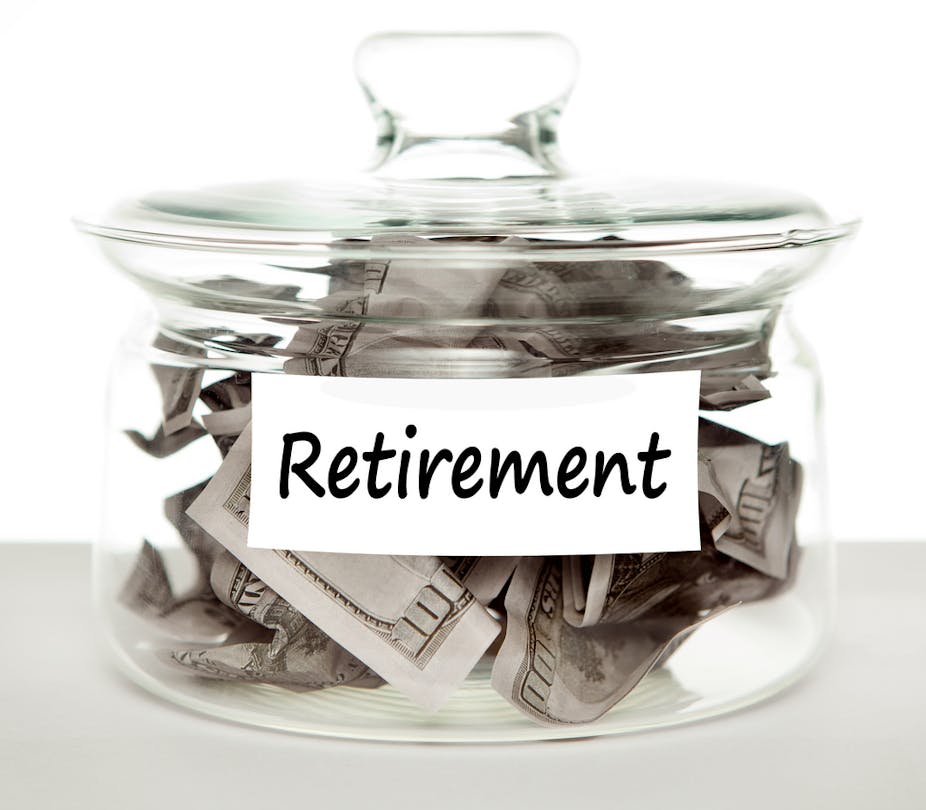Silence surrounds significant changes to your superannuation. While the changes affect many, experienced staff in universities and similar institutions are particularly vulnerable.
The halving of the contribution cap for those over 50 to $25,000 and the relatively more significant role of superannuation arrangements in university remunerations mean that those earning around $100,000 annually may find a nasty tax surprise next June. Active salary sacrificing may worsen tax exposures.
Yet it would seem that the issue has received little discussion and no carriage to the target group. I stumbled onto the issue. Two hours after the last lecture this semester, I was having an initial consultation with a Unisuper planner when it slowly dawned that I was on the cusp of tax penalties if I was to continue with my default contribution options. Salary sacrificing would build my exposure.
As a 50+ senior lecturer near the top of that salary range, I would soon be paying the top marginal tax rate on any superannuation contributions now deemed as “excess” in May Budget changes. Effectively, 46 cents of each “excess” dollar would stay with the tax department, instead of the usual 15.
That’s right. Our government has found a way to jump some of the income of those on around $100,000 or less onto the top tax rate, which is not supposed to kick in until $180,000.
Both employer and employee contributions may be in the assessed contributions total. Illustratively, at QUT these are 17% of gross income by the employer (counted) with a default employee either contributing 8.25% via salary sacrifice (counted) or 7% if income tax already paid (not counted). Salary sacrificing at the default level to an accumulation plan will take you to the limit at $99,010 (which is half the level of last year). Defined benefits arrangements are more complex. Whatever the details, check your own situation!
Employer contributions in excess of the Superannuation Guarantee (SG) of 9% are found in areas dominated by the public sector as well as the “oil, mining, construction, banking and finance/investment industries”. Some are markedly above the SG level, while others are only a little above.
Countable contributions around 25% of gross income put any employee earning around $100,000 on the edge. Salary sacrificing and any vigorous “catch up” strategies are likely to open the new tax net, including for those on lower incomes. Please note my disclaimer: I am an economist raising issues, not a financial adviser. (Such advisers should be contacted for any personal financial advice.)
“Baby boomers hoping to top up their superannuation before retirement are big losers from the budget” wrote Annette Sampson, while Trish Power saw it as “Another Super Con”. Some funds have posted warnings, such as NSW Electricians, and briefings are being advertised at QUT. But such messages do not seem to have cut through. Silence surrounds our super drift, and we really need to know why.
So, have Ministers Swan and Shorten replaced actors Paul Newman (“Gondorff”) and Robert Redford (“Hooker”) in a remake of The Sting, the seven-time Academy Award winner of 1973? The Sting occurs when the mark in a setup is separated from their money. As our Wiki-friends note: “If a con game is successful, the mark does not realise he has been ‘taken’ (cheated), at least not until the con men are long gone.”
Today, you could be “the mark” unexpectedly paying a triple tax on some income. It could also be something much more serious as several games are in play. You may well remain unaware until our Hooker and Gondorff are long gone.
Now I have been personally happy paying super, but doubts have been rising. It is not just the constant tinkering and tightening from Canberra that is of concern, but also experiences internationally. The premise that it is possible to adequately plan and invest for retirement is becoming increasingly untenable globally.
Australian wealth levels appear to be now struggling again as recent shocks compound those of the run-up phases of the Global Crisis (GC). The tightening of concessions on super only compounds problems, as will planned rises in compulsory levies from 9% to 12%.
Put bluntly: why pay punitive taxes on top of something “extra” to a fund that may or may not then perform? Worse still, current plans will continue to limit concessions to those with funds “valued” at $500 000 or more, even though such “valuations” are simply estimations riding on volatile markets.
The usual practice is to pay tax on actual earnings. Now you are to be exposed to taxes and limitations based on estimates of something that is neither realisable for some years, nor comparable to any current-period indicators. Administrative blight and perverse incentives will increase costs, risks, and gaming.
Are we dealing with a stuff-up, a Sting or something else strange? Treasury scriptwriters have indeed spun a wondrous web with many entanglements. Whatever the situation, Superannuation deserves many active conversations. Who dares “disturb the sound of silence” be it through comment here or action elsewhere, including contacting your super fund or adviser?
“I don’t want to talk about it” is not really an option for those who recognise the song from their early working life and who care for the financial heart of their retirement.

